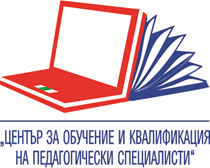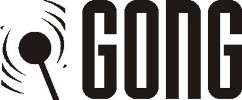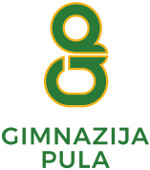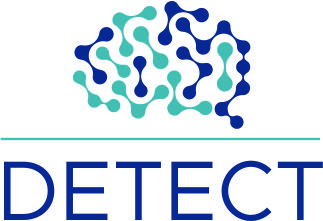


As part of University of Hannover with around 29.700 students enrolled and 1.300 staff, the overall aim of the Research Group Civic Education is to enable both young people and adults to acquire key skills and competences necessary for active citizenship and participation at all levels of social and political life. The research group offers a wide range of teacher in-service and induction trainings covering all aspects of citizenship education in teaching and learning. The trainings are offered on university-level as well as on national and European level.
The Research Group consist of 14 researchers and practitioners who focus on identifying and developing the integration of the European dimension in teaching and learning. In addition, their focus is on improving civic education for persons with migrant background and promoting gender equality and inclusive approaches to civic education, including intergenerational learning and cooperative learning. Our objective is to stimulate people's motivation and sense of initiative and to develop their civic, social, learning-to-learn and entrepreneurial skills. We have a strong record in developing innovative approaches to teaching and learning, including various projects that apply, adapt and test – in concrete learning situations – tools and policy approaches. We have a lot of expertise in the development and implementation of curricula, of national and international trainings and workshops for teachers and educational staff as well as in the development of educational materials and textbooks on civic education issues. Project expertise includes the development and coordination of several Erasmus plus Strategic partnership Projects.



The Democracy Centre Vienna (Austria) is an interdisciplinary non-profit organisation, strongly oriented to applying and conveying knowledge. It is a research institution and a virtual knowledge centre with a broad range of multimedia e-content that deals with citizenship education, digital citienship and political culture; it is concerned with processes of democratization and partizipation, current socio-political debates with regard to the civil society, commemorative cultures, different concepts of citizenship and migration, democratic citizenship education, the European Union, the media society as well as with IT-transformation and the knowledge society. In recent years the Democracy Centre Vienna has developed into an academic institute with an application-oriented profile, situated at the interface between the academic and public spheres.
Due to its application-oriented profile and its longstanding experiences in relation to pedagogical and didactical issues, the Democracy Centre Vienna has been able to establish a large network within the Austrian educational sector, where it has worked together with different actors in formal/non-formal education and administration. It is an important connection for several initiatives and organizations that deal with democracy, citizenship education and society. Through its participation in trans-boundary projects, it has also established contacts throughout Europe, contributing to a Europe-wide development of education and training for citizens.



“Center for Education and Qualification on pedagogical specialists” (Bulgaria) is a private company established in April 2016. The main purpose is to offer and implement education, in-service training and other activities with pedagogical specialists – head masters, teachers in kindergarten and schools, pedagogical counselors, pedagogical specialist in Centers for support of personal development. According to Bulgarian educational law, there is a special regulation for companies to get the right to qualified pedagogical specialists. For the Center work part-time 18 educators – University professors, teachers, experts. Until 2019 the Center have educated approximately 5000 pedagogical specialists. This number include more than 1300 head masters. We have stable contact with more than 600 schools. Each year we qualify their teachers.
Since October 2016 the Center has an ISO 9001:2015 certificate for training and qualification of pedagogical specialists. The Center has 66 approved from the Ministry of education and science programs. Under the new Education Act, teachers' and head masters' qualification programs offered by private companies must be approved by the Ministry of Education and Science.
In the list are issues like: Problem-based learning, Education without prejudices, Management of multicultural school, Management of multicultural classroom, Innovative and interactive methods in multicultural school environmental, Children's rights and opportunities for developing civic competences through extracurricular activities, Interactive pedagogical technologies and methods of working in a real and digital environment, Visualization to explore the environment.



GONG is a civil society organization founded in 1997. Its goal is to develop a democratic political culture. In addition, citizens are encouraged to participate actively and responsibly in political processes such as human rights and the rule of law.In the narrower sense GONG is a center for social development:- Research and analysis of public policies in the fields of activity- Knowledge transfer within Croatia and states in the southeast of Europe, especially in the field of political education- advocating for social change that leads to more social justiceGONG provides training for youth, teachers, civil society workers, civil servants and others. It is a member of the GOOD network: Initiative for Citizenship Education. This has played a major role in the planning and implementation of the Networking Citizenship Education Europe (NECE) conference in Zagreb (November 2016). GONG and GOOD initiated the biggest public protests to support curriculum reform. The aim of the reform was to strengthen the ability to train critical thinking as well as to acquire skills in order to find a way in a pluralistic society. It demonstrated 25,000 people. However, the reform was undermined by policy makers and radical nationalist groups and ultimately not implemented. This reform was urgently needed, and many Croatian scientists and practitioners spoke at the NECE conference. A study by the GONG employee Horvat / Kovačić from 2016 (From Subjects to Citizens: developing the civic competencies of youth) shows that democratic competences are only weak for adolescents. These include e.g. High approval rates for statements on group-focused enmity.This can primarily be attributed to the fact that in Croatia the subject "political education" (or social studies, politics, etc.) does not exist. This, in turn, is a result of a lack of political will.Secondary school graduates are not prepared to deal with populist manipulation. In Croatia, nationalist thinking is widespread, many groups and parties aim to undermine democracy, to define "others" as not belonging to Croatian society, and to pursue historical revisionism.Employees of GONG are active in Croatia as election observers (local, national and EU level). They also participated as election observers in many countries (eg Ukraine, USA, Lebanon, Gaza Strip, Bulgaria, Kosovo ...) GONG also participates in the so-called LOTUS research, the first study of local governments in Croatia in terms of transparency.



The Gymnasium Pula prepares the 680 pupils (15-18 years old) for further education at technical colleges and universities. Pupils can choose to focus on languages or science. 75 teachers work at the Gymnasium Pula. The youngsters are at the school for 4 years, they are taught in 14 subjects. In addition, there are a number of subjects that they can volunteer, as well as participation in extracurricular work groups. For example, these groups deal with historical-political education. The young people examine the extent to which people from the region of Istra and other parts of Croatia were involved in the crimes of National Socialism, and they investigate where certain citizens were deported. Dedicated teachers regularly organize trips to visit the former Auschwitz and Birkenau extermination camps.Another AG deals with film analysis and the production of own clips. Again and again here are filmmakers or so-called video artist guest. In discussions with the filmmakers or artists, the young people learn, for example, a lot about stylistic devices and the influence that they can have on the recipients.The Pula Gymnasium cooperates with various secondary and technical schools in the region (e.g., School of Applied Arts, School of Tourism and Catering Industry, Business School Pula and Italian High School Dante Alighieri), e.g. in cross-school projects, which are usually financed by Istra County. In addition, the Gymnasium Pula cooperates with NGOs or associations (for example, GONG, Forum for Freedom and Education, Pula Film Factory). Thematically, it is about human rights, democratic values, intercultural cohabitation, etc. Discussions between pupils and politicians from the region prepared and implemented.
CERMES (Centre for European Refugees, Migration and Ethnic Studies) (Bulgaria) is an academic organisation, specialized in the field of migration studies. We were founded more than 15 years ago and were the first scholars in Bulgaria to work in the field of migration and refugee studies at a national, European and international level. Our main fields of research are migration and refugee policies, populism, citizenship, civic mobilisations on and off-line. Our portfolio covers research, teaching and training, policy-oriented expertise, publications and civic activities.
Our dynamic team of senior and junior researchers, with different and complementing backgrounds, is proud to offer a unique link between academia, migrants, decision makers and civil society. The CERMES research team has rich experience in qualitative political science studies on national and international level, EU projects, including FP6, FP7 and Horizon 2020. Our researchers have contributed to several publications in Routledge, Springler, Palgrave: Macmillan, McGill, etc.
